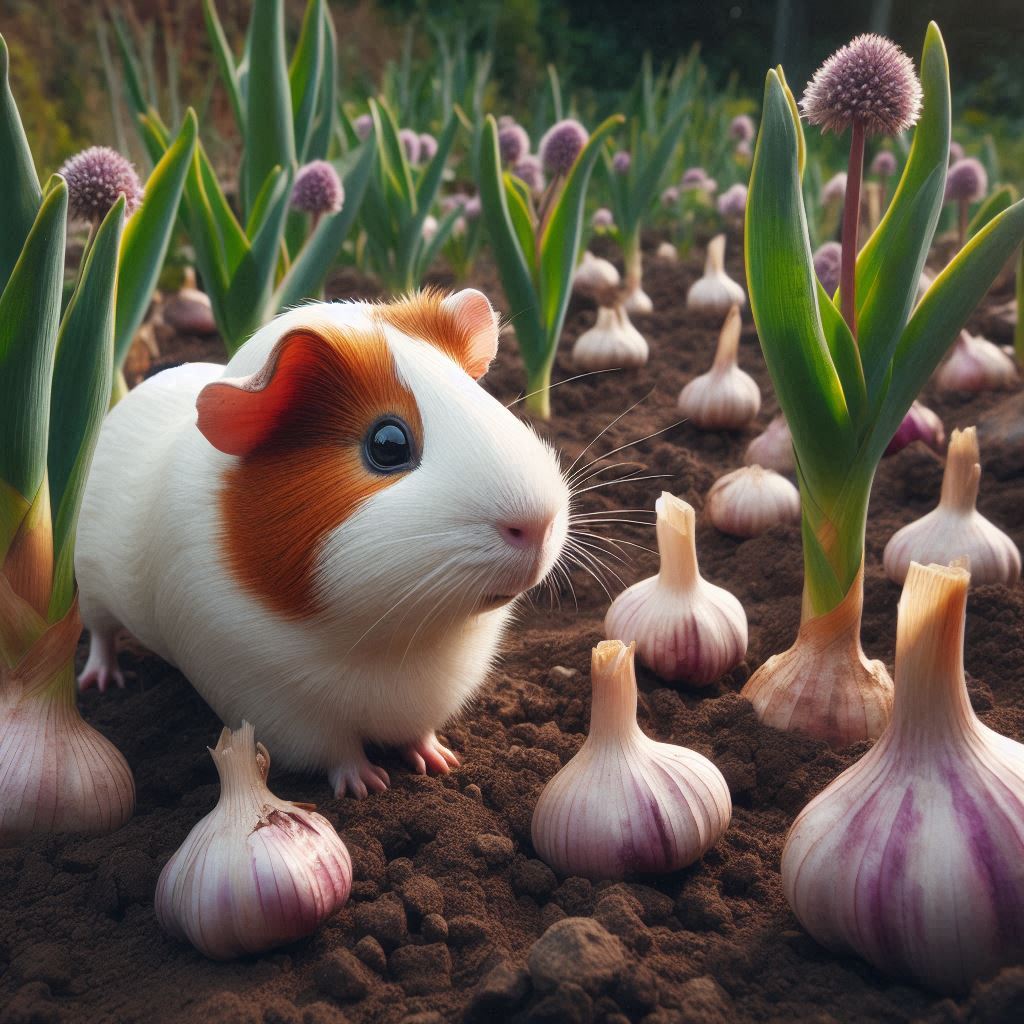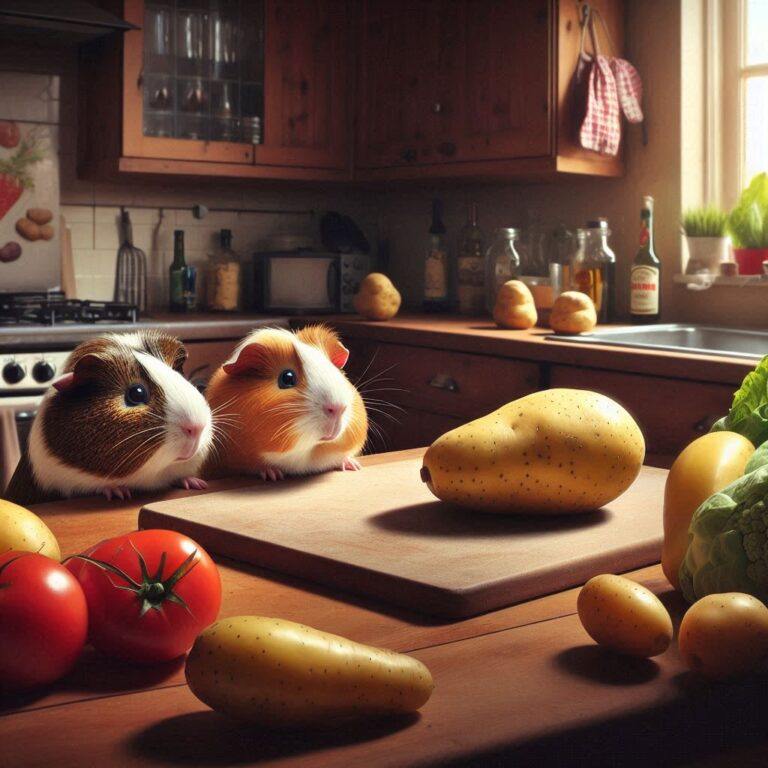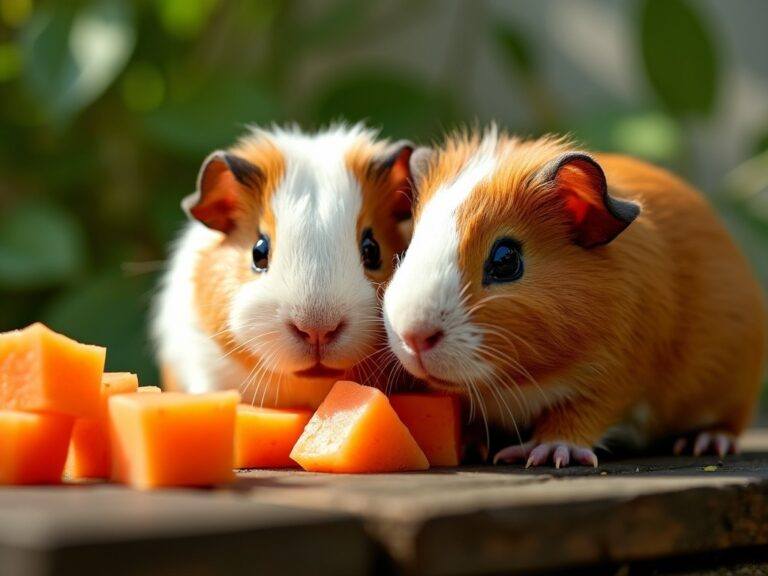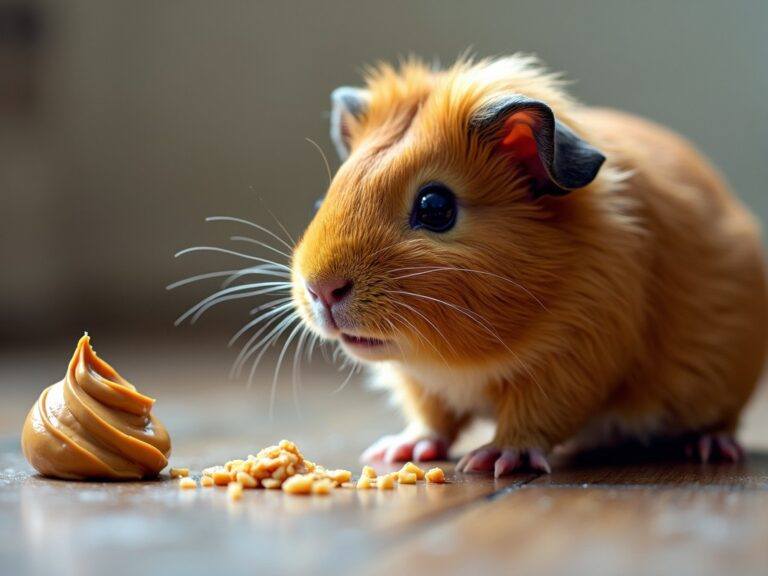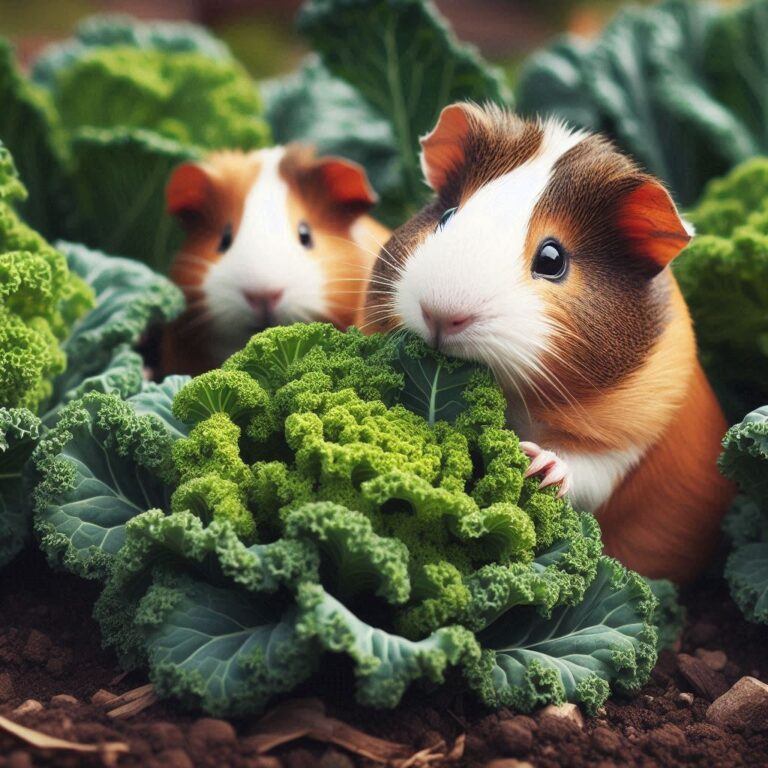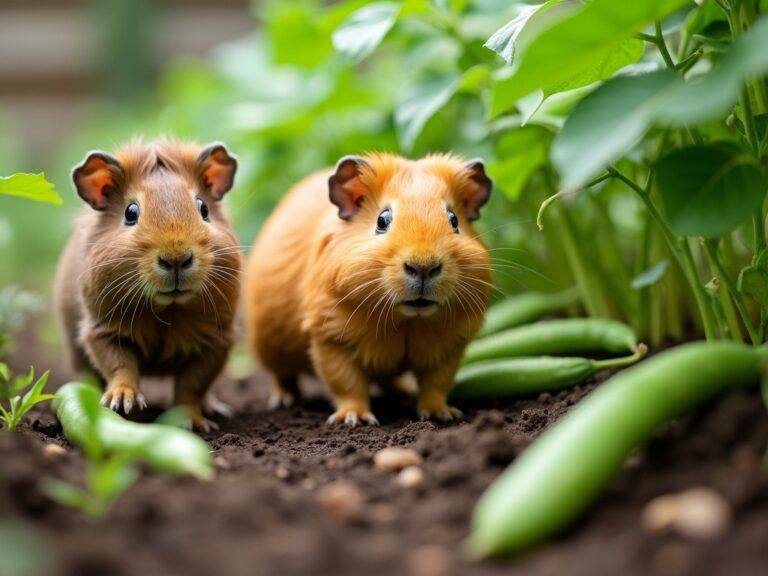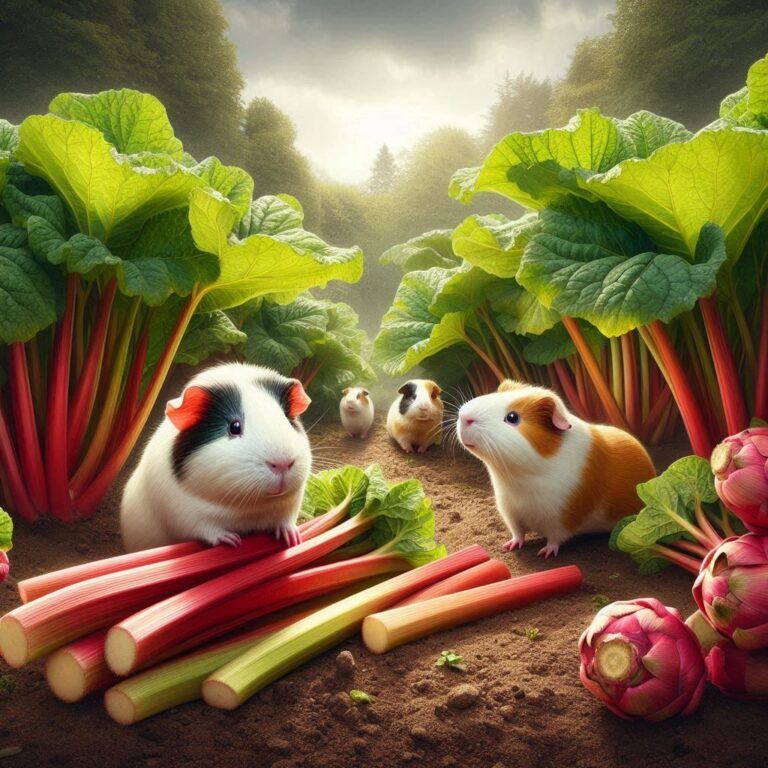Can Guinea Pigs Safely Eat Garlic
No, guinea pigs cannot safely eat garlic. This common kitchen ingredient is toxic to these small pets and can cause serious health problems. As a guinea pig owner, it’s crucial to understand which foods are safe and which are harmful to your furry friend’s health.
I’ve been researching and writing about pet nutrition for years, and I’ve learned that guinea pig diets require careful consideration. Here, I’ll explain why garlic is dangerous for guinea pigs, what can happen if they eat it, and what you should feed them instead.
Why Garlic is Harmful to Guinea Pigs
Garlic contains compounds that are toxic to guinea pigs. The main culprit is a substance called allicin, which gives garlic its distinctive smell and flavor.
While humans can process this compound without issues, guinea pigs’ digestive systems aren’t equipped to handle it.
When a guinea pig eats garlic, several health problems can occur:
• Blood disorders: Garlic can cause anemia in guinea pigs by damaging their red blood cells.
• Digestive issues: It can lead to upset stomach, diarrhea, and loss of appetite.
• Respiratory problems: In some cases, garlic consumption can cause breathing difficulties.
The symptoms of garlic poisoning in guinea pigs can be severe and may include:
• Weakness and lethargy
• Pale gums
• Rapid breathing
• Vomiting or diarrhea
• Loss of coordination
It’s important to note that all members of the allium family pose similar risks to guinea pigs. This includes onions, chives, and leeks. These foods contain the same toxic compounds as garlic and should also be avoided.
If you suspect your guinea pig has eaten garlic or any other allium vegetable, contact your veterinarian immediately. Quick action can make a significant difference in the outcome.
Safe Alternatives and Proper Guinea Pig Diet
Now that we’ve covered what guinea pigs shouldn’t eat, let’s focus on what they should eat. A healthy guinea pig diet consists of three main components:
Hay: This should make up about 80% of their diet. Timothy hay is an excellent choice for adult guinea pigs
Fresh vegetables: About 10-15% of their diet should be fresh veggies.
Pellets: The remaining 5-10% can be high-quality guinea pig pellets.
Safe vegetables for guinea pigs include bell peppers, cucumber, carrots, romaine lettuce, and zucchini.
As for fruits, they should be given sparingly as treats due to their high sugar content. Safe options include seedless apples, strawberries, blueberries, or melon.
When it comes to portion sizes, a good rule of thumb is to provide about 1 cup of fresh vegetables per day for an adult guinea pig.
This should be split into two feedings. Fruits should be limited to 1-2 small pieces, 2-3 times a week.
How Best to Introduce New Foods
Always start with a small amount of the new food and observe your guinea pig for 24 hours for any signs of digestive upset.
If there are no issues, you can slowly increase the amount over time and I always recommend introducing only one new food at a time.
It’s crucial to remember that every guinea pig is unique. What works for one might not work for another. Pay attention to your pet’s preferences and reactions to different foods.
Understanding what guinea pigs can and can’t eat is key to keeping them healthy. While garlic and other alliums are off the menu, there are plenty of safe and nutritious options to choose from.
Remember these key points:
• Garlic is toxic to guinea pigs and should never be fed to them.
• A balanced diet of hay, vegetables, and pellets is essential.
• Introduce new foods slowly and in small amounts.
• If you’re ever unsure about a food, it’s best to consult a veterinarian specializing in small animals.
By providing a proper diet and avoiding harmful foods like garlic, you’re setting your guinea pig up for a long, healthy, and happy life. Your furry friend will thank you for it with their energetic squeaks and playful antics.

